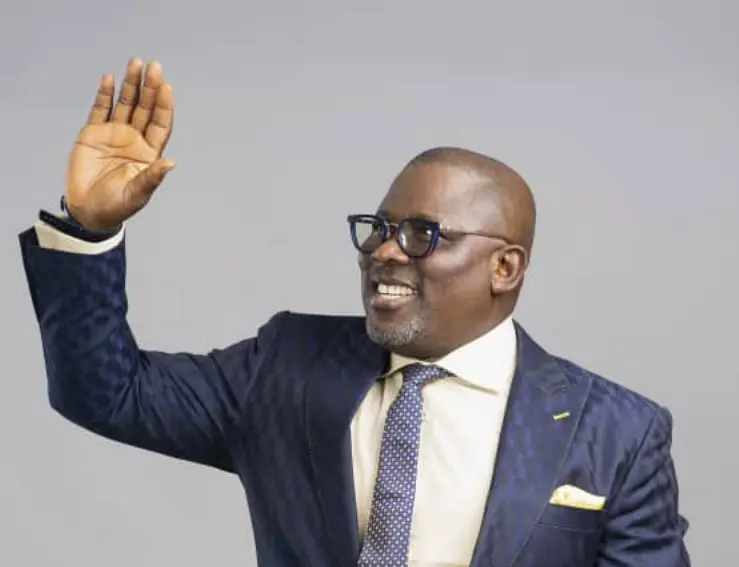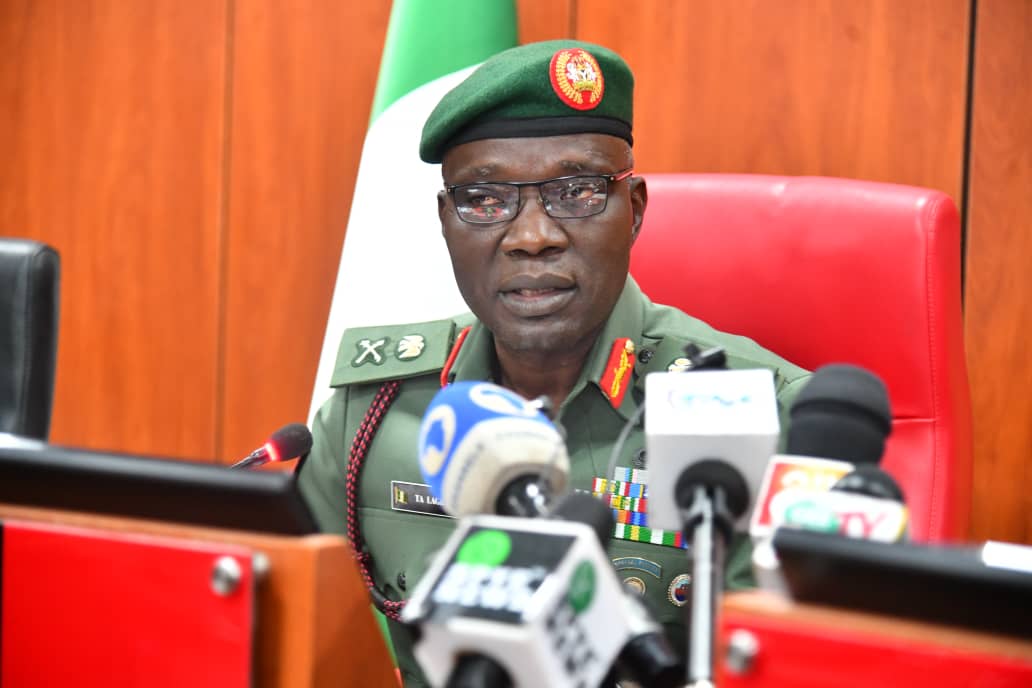City Crime
10 Reasons Why Anti-Corruption War Is Not Succeeding
City Crime
Delta Attorney-General Laments Hike In Human Trafficking

Delta State Attorney-General and Commissioner for Justice, Ekemejero Ohwovoriole (SAN) has lamented the increasing rate of human trafficking, especially the girl child in the state.
Ohwovoriole decried the increase in his office in Asaba when the zonal commander of the National Agency for the Prohibition of Trafficking in Persons (NAPTIP), Mr Nduka Nwawenne paid him a courtesy visit.
The Attorney-General stated that it was against the dignity of the state and disheartening to see that Delta State now ranked first in human trafficking, overtaking Edo State.
He stressed the need for stakeholders to tackle the menace, adding that if it was one single victim that was rescued, they would be rewarded for their efforts.
Ohwovoriole stated that young girls were the most vulnerable ones in the issue of human trafficking, stressing that children from poor family backgrounds also fall victim to human trafficking.
While saying that their request for an office space in the state would be looked into, to see how the government could be of assistance to them, he assured them of his ministry’s partnership in the fight against human trafficking.
He said that the Task Force on human trafficking and irregular migration, which he chairs, should be having regular meetings.
Earlier, the Zonal Commander of Naptip, Mr. Nwawenne informed the commissioner that Delta state had overtaken Edo state as the foremost state in human trafficking in nigeria.
He told the Attorney-General that their Zonal Command was the first to be established in Nigeria because of the prevailing issues of human trafficking in the area, noting that ika south was the highest in cases of human trafficking as a result of its proximity with edo state.
Nwawenne appealed to the Commissioner and the State Government to provide office accommodation for their officials to operate in Asaba.
City Crime
Army Arrests 50 Foreigners, Others For Job Racketeering

The Nigerian Army said it has arrested 50 suspects, including foreigners, for alleged international job racketeering in Lagos.
The Director, Army Public Relations, Brig. Gen. Onyema Nwachukwu, who addressed journalists in Abuja, on Wednesday, said the suspects were arrested during an operation jointly conducted by the Army and the Nigeria Immigration Service.
He also disclosed that no fewer than 13 criminals were killed and 88 arrested during various operations across 20 states of the federation.
Among those arrested include 50 suspects comprising foreigners who were nabbed for alleged International job racketeering.
Onyema said, “In the South-West region, on November 2, 2023, troops of 9 Brigade Nigerian Army in conjunction with personnel of Nigerian Immigration Service, Lagos State Command, conducted a raid operation on a suspected criminal hideout at Ifako Ijaye.
“During the operation, 50 suspects, including foreigners who specialise in international job racketeering, were arrested. In a similar development same day, the same troops arrested two suspects at a hotel in Ogba in the Ikeja LGA.
“The arrest was in connection with the murder of one Mallam Idris Ardo, the Ardo of Panya Village in Plateau State. Preliminary investigation revealed that one of the arrested suspects masterminded the killing of Ardo and fled the community since the incident occurred.”
City Crime
Elder Statesman Charges FG On Judges, Magistrates’ Security
An elders statesman and advocate of oil rights in the Niger Delta, Rev Sokari Soberekon, has called on the Federal Government to beef up security for High Court Judges and Magistrates in the country. The iconoclastic doctor of humanities made this plea while addressing newsmen during the just concluded 2023/2024 rededication of the legal year of the Rivers State Judiciary held at the St. Cyprian’s Anglican Church in Port Harcourt last Thursday.
Soberekon stressed the essence of maximised security for Judges and Magistrates in Nigeria to ensure prompt and fearless dispensation of justice, equity and fairplay. He, maintained that apart from armed Police orderlies, the Judges and Magistrates should be legally authorised to keep personal arms for self defence when necessary, adding that this innovative policy would enhance the desired environment for an independent judiciary.
According to the octogenarian minority rights activist, the judiciary is the sanctuary of justice and equity.
He recalled the circumstances surrounding the gruesome murder of the former Federal Attorney General and Minister of Justice, Late. Chief Bola Ige.
Soberekon noted that, in spite of the retinue of official security aides attached to the late former Governor of Oyo State, Ige would not have been murdered if he was personally armed on that fateful day of his demise.
Soberekon emphasised the need to shun eye service in the nation’s polity.
He, however, maintained that the only Oga in politics is God Almighty, who he said uses people to install others in office.
Soberekon recalled the meeting he had with King Alfred Diete-Spiff in Lagos from where the pioneer Governor of the State started planning the blueprint of the old Rivers State.
He said what Rivers State needs now is peace, and applauded the placard with the description, ‘Peace’, displayed during the rededication ceremony.
He noted with delight that while delivering a sermon at the occasion, the Vicar of the church advised Nigerians to give peace a chance and also to build a nation where peace and justice reign.
-
Sports4 days ago
Pinnick Wants Finidi For Super Eagles Job
-

 News4 days ago
News4 days agoEFCC Recovers N32.7bn, $445,000 From Humanitarian Ministry
-
Politics1 day ago
Sack Incompetent Officials In Your Govt, NANS Urges Tinubu
-

 News1 day ago
News1 day ago2024 Democracy Day: FG Inaugurates 17-Man Inter-Ministerial Committee
-

 Environment4 days ago
Environment4 days agoWomen Group Tasks Society On Climate Change
-

 Politics4 days ago
Politics4 days agoThere Are Consequences For Disloyalty, Fubara Warns LG Chairmen
-

 News4 days ago
News4 days agoDisclose Nigeria’s Loan Agreements Since 1999, SERAP Tells Tinubu
-

 SMEs1 day ago
SMEs1 day agoNCS Redeploys Comptrollers, Promotes Two

